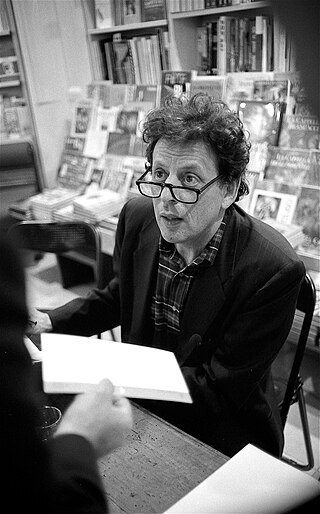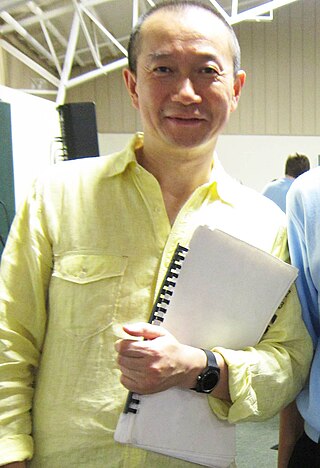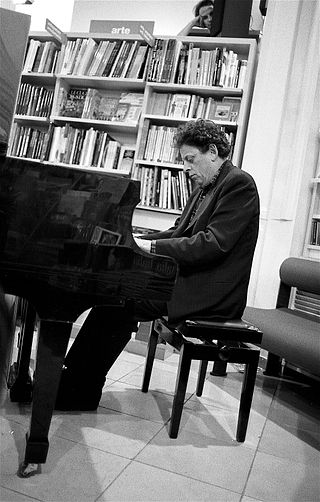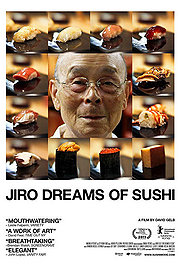Related Research Articles

Philip Glass is an American composer and pianist. He is widely regarded as one of the most influential composers of the late 20th century. Glass's work has been associated with minimalism, being built up from repetitive phrases and shifting layers. Glass describes himself as a composer of "music with repetitive structures", which he has helped to evolve stylistically.

The Four Seasons is a group of four violin concerti by Italian composer Antonio Vivaldi, each of which gives musical expression to a season of the year. These were composed around 1718–1720, when Vivaldi was the court chapel master in Mantua. They were published in 1725 in Amsterdam, together with eight additional concerti, as Il cimento dell'armonia e dell'inventione.

Julian Lloyd Webber is a British solo cellist, conductor and broadcaster, a former principal of Royal Birmingham Conservatoire and the founder of the In Harmony music education programme.

Alfred Garrievich Schnittke was a Russian composer. Among the most performed and recorded composers of late 20th-century classical music, he is described by musicologist Ivan Moody as a "composer who was concerned in his music to depict the moral and spiritual struggles of contemporary man in [...] depth and detail."

Franz Adolf Berwald was a Swedish Romantic composer and violinist. He made his living as an orthopedist and later as the manager of a saw mill and glass factory, and became more appreciated as a composer after his death than he had been in his lifetime.

Tan Dun is a Chinese-born American composer and conductor. A leading figure of contemporary classical music, he draws from a variety of Western and Chinese influences, a dichotomy which has shaped much of his life and music. Having collaborated with leading orchestras around the world, Tan is the recipient of numerous awards, including a Grawemeyer Award for his opera Marco Polo (1996) and both an Academy Award and Grammy Award for his film score in Ang Lee's Crouching Tiger, Hidden Dragon (2000). His oeuvre as a whole includes operas, orchestral, vocal, chamber, solo and film scores, as well as genres that Tan terms "organic music" and "music ritual."
Robert McDuffie is an American violinist. He has played as a soloist with many of the major orchestras around the world including those of New York City, Los Angeles, Chicago, Montreal, Toronto, San Francisco, Philadelphia, Cleveland, Minnesota, Houston, St. Louis, Hamburg Symphony Orchestra, Leipzig Gewandhaus Orchestra, the North German Radio Symphony Orchestra, the Frankfurt Radio Orchestra, the Deutsche Kammerphilharmonie Bremen, Orchestra del Teatro alla Scala, Santa Cecilia Orchestra of Rome as well as the major orchestras of Australia and East Asia.
Robert Saxton is a British composer.
Paul Zukofsky was an American violinist and conductor known for his work in the field of contemporary classical music.
Philip Glass's Violin Concerto No. 1 was commissioned by the American Composers Orchestra for soloist Paul Zukofsky and premiered in New York City on 5 April 1987. The work was composed with Glass's late father in mind. The piece quickly became one of Glass's most popular works. It is usually around 25–30 minutes in duration when performed.
Philip Glass' Violin Concerto No. 2, titled The American Four Seasons, received its world premiere in Toronto on December 9, 2009, with violinist Robert McDuffie, for whom the work was composed, and the Toronto Symphony Orchestra under conductor Peter Oundjian. Its European premiere was in London on April 17, 2010, with McDuffie and the London Philharmonic Orchestra under conductor Marin Alsop.

The Cello Concerto No. 1 was written by Philip Glass in 2001. It was one of the first concerti of the twenty-first century. The piece was commissioned by William and Rebecca Krueger, friends of both the cellist Julian Lloyd Webber and the conductor Yu Long in celebration of Lloyd Webber's 50th birthday and the first anniversary of Maestro Yu's China Philharmonic Orchestra. The work was premiered by Lloyd Webber with Long Yu conducting the China Philharmonic during the 2001 Beijing Music Festival, and attracted significant attention as the first time the work of a major western composer had its world premier in China. A typical performance takes about 30 minutes. The work is paired with the Concerto Fantasy for Two Timpanists and Orchestra as part of Glass' Concerto Project, a series of collected concerti by the composer. The cello concerto is among the most famous of Glass' works for a solo instrument.
The Concerto Fantasy for Two Timpanists and Orchestra is a double timpani concerto written by Philip Glass in 2000. It is paired with the Cello Concerto on Vol. I of Glass' Concerto Project, a set of eight concerti by the composer. A typical performance of the work lasts 25–28 minutes. It was written for Jonathan Haas and later recorded by Evelyn Glennie, and was premiered by Haas and Svet Stoyanov with the American Symphony Orchestra in Avery Fisher Hall, Lincoln Center, conducted by Leon Botstein. The work was commissioned jointly by the American Symphony Orchestra, the Peabody Symphony, the Milwaukee Symphony, the St. Louis Symphony and the Phoenix Symphony. In 2004, a transcription for wind ensemble was written by Mark Lortz, which debuted at Peabody Institute in 2005.
The Tirol Concerto for Piano and Orchestra is a piano concerto by Philip Glass. The composer wrote the work in 2000. On commission by the Klangspuren in Stuttgart, it was written for the Stuttgarter Kammerorchester. It is one of eight concerti in Glass' series The Concerto Project, an amalgamation of works in four volumes.

The Piano Concerto No. 2 was written by American composer Philip Glass in 2004. It is also called the Piano Concerto No. 2: After Lewis and Clark, due to its musical representation of the American pioneers. It was composed for the Nebraska Lewis and Clark Bicentennial Commission, the Lied Center for Performing Arts, and the University of Nebraska-Lincoln Hixson–Lied College of Fine and Performing Arts. It is included as one of the concerti in Glass' Concerto Project, a four-volume collection of commissioned works. The work itself deals with the journey of Meriwether Lewis and William Clark, interpreting the stages of their expedition progressively in each movement.

The Concerto for Harpsichord and Orchestra was completed by Philip Glass in spring of 2002. It was commissioned for the Northwest Chamber Orchestra by Charles and Diana Carey and published by Dunvagen Music. Glass wrote the concerto with the Baroque tradition in mind; however, in order to approach the work in a modern idiom, he calls for a contemporary chamber orchestra to accompany the harpsichord. The concerto was premiered in September 2002 in Seattle, with David Schrader as soloist performing with the Northwest Chamber Orchestra. It is approximately 20 minutes in length. The concerto was included in Glass' Concerto Project, a collection in four volumes.

Jiro Dreams of Sushi is a 2011 Japanese-language American documentary film directed by David Gelb. The film follows Jiro Ono, a then-85-year-old sushi master and owner of Sukiyabashi Jiro, previously a Michelin three-star restaurant. Sukiyabashi Jiro is a 10-seat, sushi-only restaurant located in a Tokyo subway station. As of 2023, Jiro Ono serves a tasting menu of roughly 20 courses, for a minimum of JP¥55,000 (US$270).
Herman "Erik" Nordgren was a Swedish composer, arranger and bandleader.
References
- ↑ Richard Kostelanetz (1997). Writings on Glass. Schirmer Books. p. 25. ISBN 9780028646572.